Conversion skills Measurement Worksheets for Ages 3-9
5 filtered results
-
From - To
Our "Conversion Skills Measurement Worksheets for Ages 3-9" offer comprehensive practice to enhance young learners' understanding of essential measurement conversions. Specially designed for children aged 3-9, these worksheets cover topics such as length, weight, and volume, ensuring a solid foundation in basic math. Packed with engaging illustrations and interactive exercises, the worksheets transform complex concepts into fun, educational experiences. Perfect for classroom use or at-home learning, they encourage critical thinking, problem-solving, and a love for math. Equip your child with the vital skills they need to excel in measurement conversions with these expertly crafted resources.
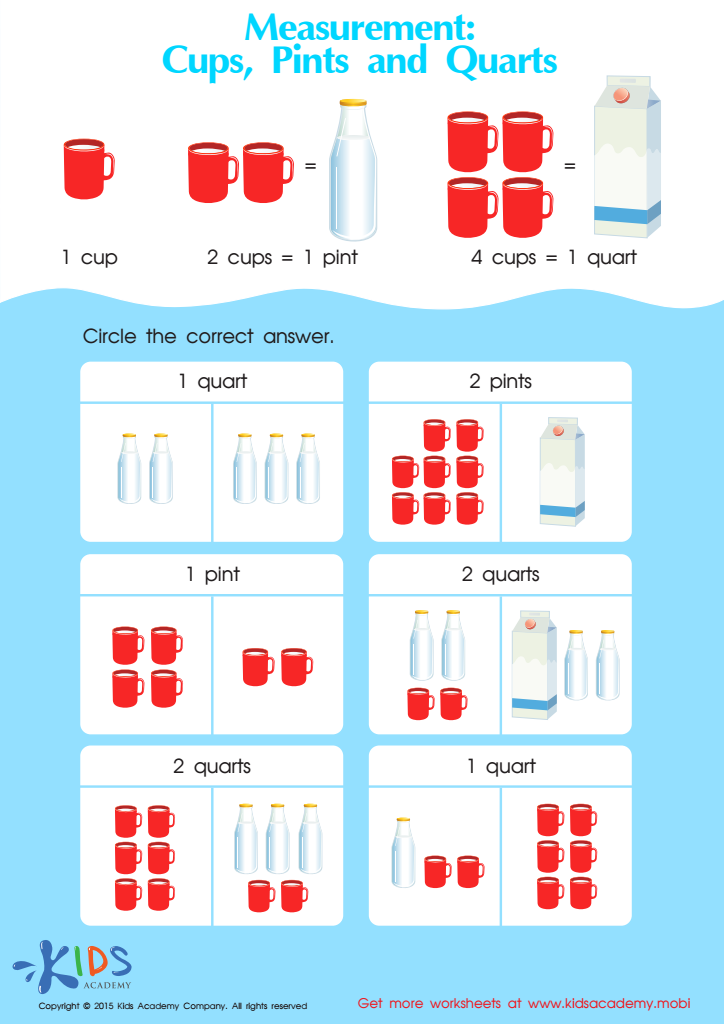

Cups, Pints and Quarts Worksheet
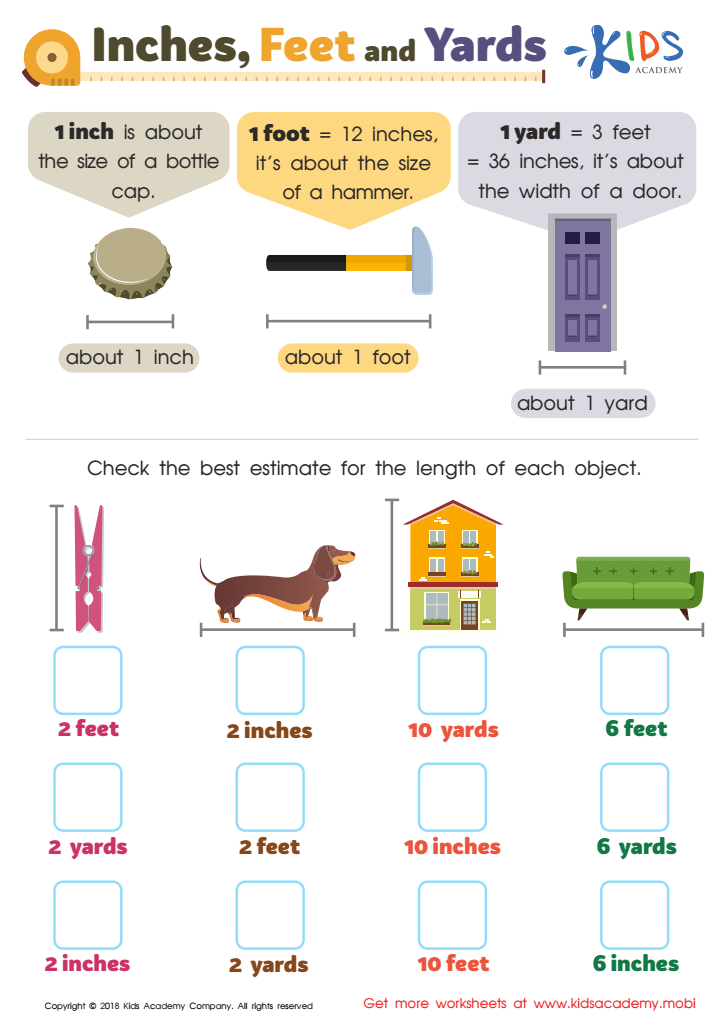

Inches, Feet and Yards Worksheet
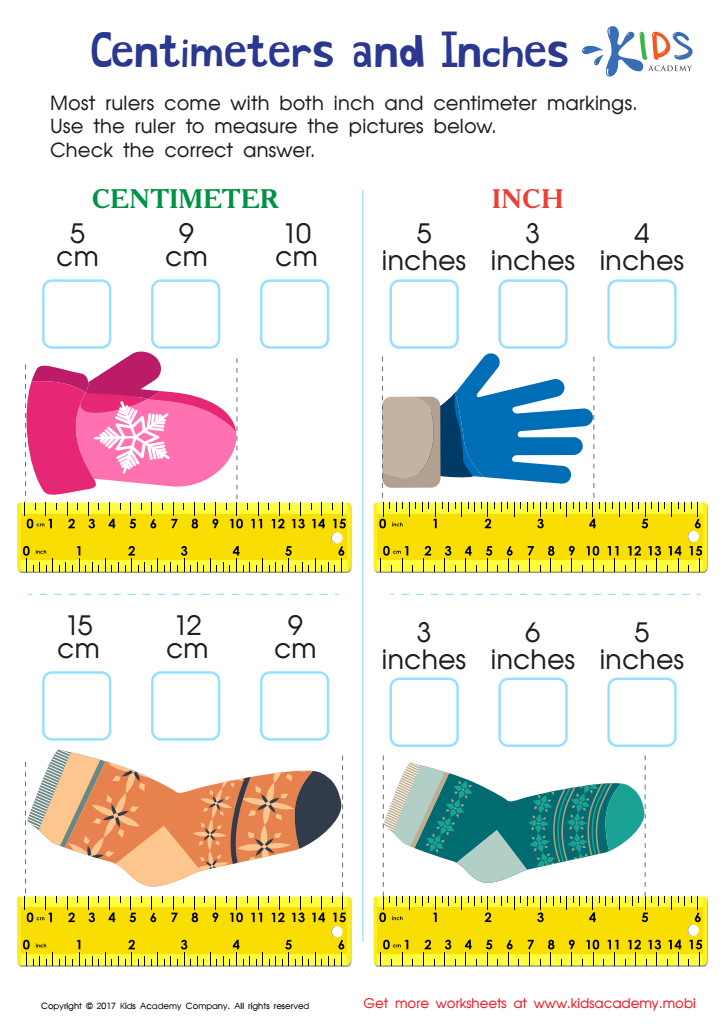

Centimeters and Inches Worksheet
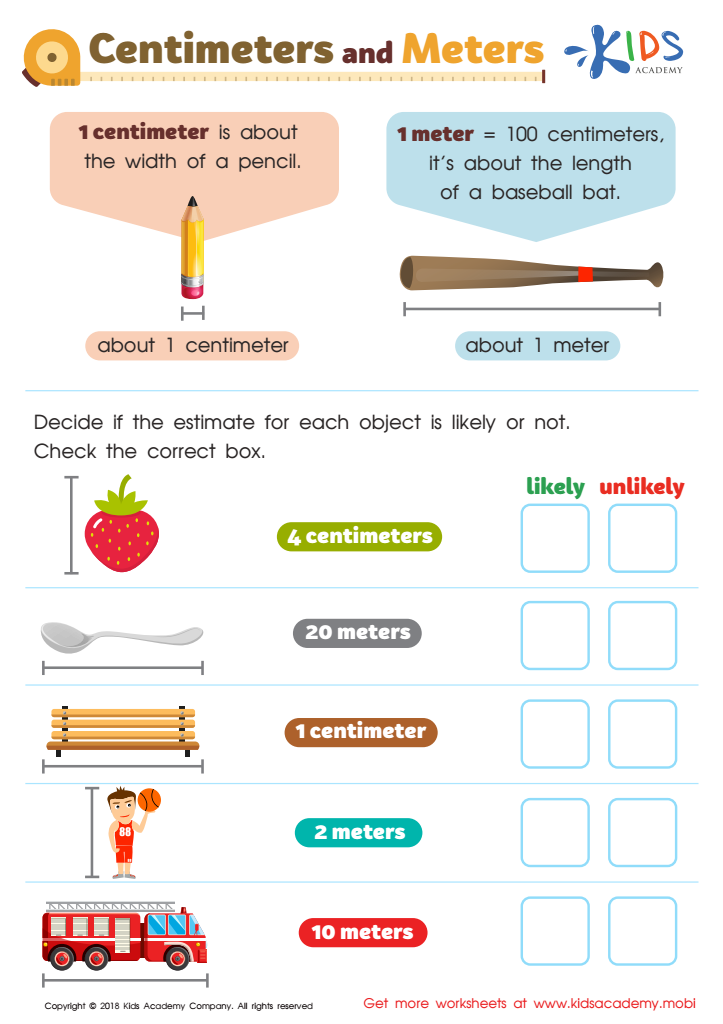

Centimeters and Meters Worksheet
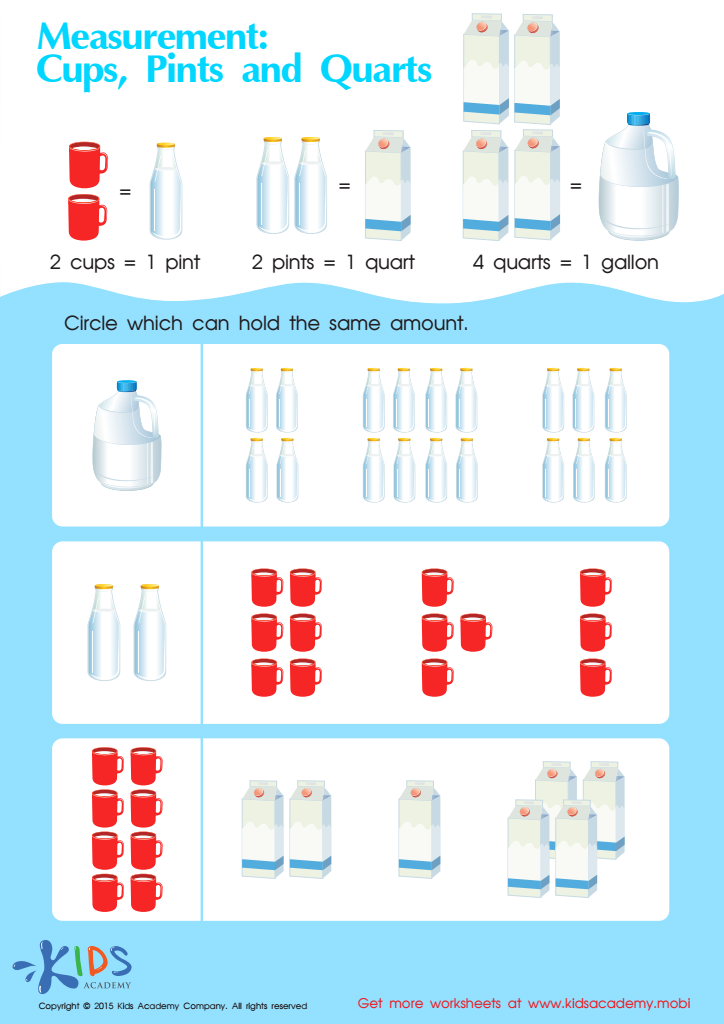

Cups, Pints and Quarts 2 Worksheet
Conversion skills measurement for children ages 3-9 is crucial because it directly impacts foundational cognitive development, aiding in both academic and everyday activities. Conversion skills involve understanding basic concepts of quantity, size, measurement, and transitions between different units or formats, such as counting objects, measuring length, or understanding time.
At this formative stage, children's brains are highly adaptable and primed for learning essential concepts that will underpin their future education. Measuring conversion skills allows parents and teachers to identify a child's grasp on these fundamental concepts early on. By doing so, they can provide targeted support to ensure that no gaps in understanding develop, which might later translate into difficulties in more complex problem-solving tasks.
Moreover, proficiency in these skills promotes better logical reasoning and critical thinking. For instance, when children compare quantities or measure objects, they enhance their mathematical reasoning and develop a strong sense of numerical relationships. This will be important not only for mathematics but across all STEM fields.
Parents and teachers can also provide real-world contexts to learning, making it more engaging and practical. Early intervention enabled by regular assessment and understanding of conversion skills is key to fostering a strong academic foundation and ensuring children achieve their full potential.
 Assign to My Students
Assign to My Students





















